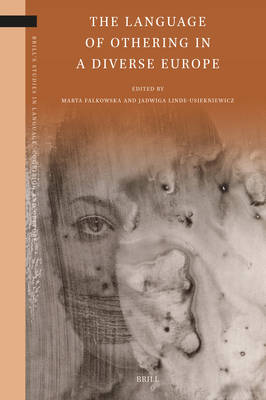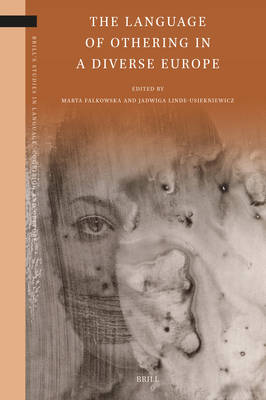
- Afhalen na 1 uur in een winkel met voorraad
- Gratis thuislevering in België vanaf € 30
- Ruim aanbod met 7 miljoen producten
- Afhalen na 1 uur in een winkel met voorraad
- Gratis thuislevering in België vanaf € 30
- Ruim aanbod met 7 miljoen producten
Zoeken
The Language of Othering in a Diverse Europe
€ 230,45
+ 460 punten
Omschrijving
This book explores how language is used to create division and discrimination in diverse European societies by emphasizing differences in ethnicity, race, national identity, beliefs, or appearance. The authors analyze how public discourse--particularly in political and media narratives--shapes and reinforces an "us vs. them" mindset. They examine words and expressions that denigrate or marginalize specific groups in Polish, German, Czech, Slovak, and Croatian, and observe how certain communities are also reclaiming terms that were once hurtful. The analyses of linguistic strategies employed in the process of othering demonstrate that the concept of othering can be effectively applied to linguistic data.
Contributors are: Dagmara Banasiak, Marta Chojnacka-Kuraś, Marta Falkowska, Jadranka Gvozdanovic, Milena Hebal-Jezierska, Agnieszka Karlińska, Anna Kolos, Marie Kopřivová, Marek Laziński, Jadwiga Linde-Usiekniewicz, Agnieszka Mikolajczuk, Iva Petrak, Jiří Rejzek, Lucie Saicová Římalová, Lukasz Wnuk, and Magdalena Zawislawska.
Contributors are: Dagmara Banasiak, Marta Chojnacka-Kuraś, Marta Falkowska, Jadranka Gvozdanovic, Milena Hebal-Jezierska, Agnieszka Karlińska, Anna Kolos, Marie Kopřivová, Marek Laziński, Jadwiga Linde-Usiekniewicz, Agnieszka Mikolajczuk, Iva Petrak, Jiří Rejzek, Lucie Saicová Římalová, Lukasz Wnuk, and Magdalena Zawislawska.
Specificaties
Betrokkenen
- Uitgeverij:
Inhoud
- Aantal bladzijden:
- 368
- Taal:
- Engels
- Reeks:
- Reeksnummer:
- nr. 44
Eigenschappen
- Productcode (EAN):
- 9789004739116
- Verschijningsdatum:
- 21/08/2025
- Uitvoering:
- Hardcover
- Formaat:
- Genaaid
- Afmetingen:
- 162 mm x 239 mm
- Gewicht:
- 657 g

Alleen bij Standaard Boekhandel
+ 460 punten op je klantenkaart van Standaard Boekhandel
Beoordelingen
We publiceren alleen reviews die voldoen aan de voorwaarden voor reviews. Bekijk onze voorwaarden voor reviews.







